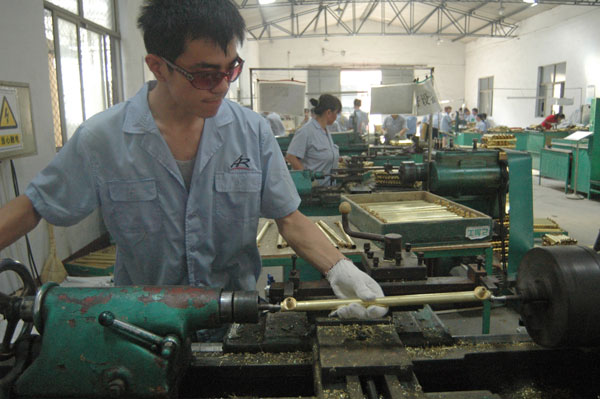Debate grows over reproductive rights
Updated: 2015-08-11 07:57
By Shan Juan(China Daily)
|
|||||||||||
|
|
Sociologist advocates creating policy that gives single women same privileges as married ones
Single women in China are not allowed to freeze their eggs for use in the future, a fact that is central to the issue of single women's reproductive rights, according to a well-known sociologist and sexologist based in Beijing.
Li Yinhe made the remarks as a heated public discussion about the issue is gradually escalating into one about separating reproduction and marriage.
"I strongly propose a change to the law, giving back the right of reproduction to unmarried women as well," she said.
Women, regardless of marital status, should be equal when it comes to having children, she said, citing China's law on population and family planning.
It stipulates that all citizens have the right to reproduction and family planning.
Also, children born out of wedlock have rights equal to others and must not be discriminated against or harmed, the marriage law says.
However, the reality often proves to be different.
A single mother is required to pay a so-called social maintenance fee while applying for a hukou, or residence permit, for her baby. Without a hukou, a child faces difficulty getting into kindergarten and school.
Growing concern
Single women are becoming increasingly concerned about their reproductive rights, and the issue should be addressed urgently, Li said. The law should be adjusted according to changing social situations, she added.
Li suggested that the family planning law be changed to allow each woman, married or single, the right to have her own children.
Northeast China's Jilin province took a lead on the topic last year.
Single women of marriage age who have no children and decide to stay single can have a baby via assisted reproductive technology, states an amendment to the provincial family planning regulation.
"That, in truth, is more practical than just a human rights issue," said Lu Jiehua, professor of sociology at Peking University.
Due to the family planning policy and socioeconomic development, Chinese people's perception about reproduction has changed as well, he said.
Currently, the fertility rate (the number of children a woman gives birth to in her lifetime) stands at around 1.4, far below the rate of 2.1, which is necessary to replace the population.
Lu projected that the number of women age 23 to 28 would decrease to about 42 million by 2024 from more than 73 million last year.
"A shortage in the labor supply is looming," he warned. "That will hurt economic growth as well.
"Single women should be allowed to freeze their eggs if they plan to have children, and that would help address the population issue," he said.
Related Stories
Frozen assets may not beat the biological clock 2015-07-29 10:08
Today's Top News
Greece, lenders in stretch run to to seal new bailout
State Council approves plan to overhaul SOEs, claims report
Amazing China 2015 photo contest unveiled in Beijing
China's HK CTS Metropark buys Kew Green, manager of Brighton's Grand Hotel
Chinese companies finding credibility abroad
Sun Yang is no-show for 1,500 free final at worlds
Measuring women's bust shows how dating is transforming
China rejects Philippine, Japanese, US claims on S. China Sea issue
Hot Topics
Lunar probe , China growth forecasts, Emission rules get tougher, China seen through 'colored lens', International board,
Editor's Picks

|

|

|

|

|

|







